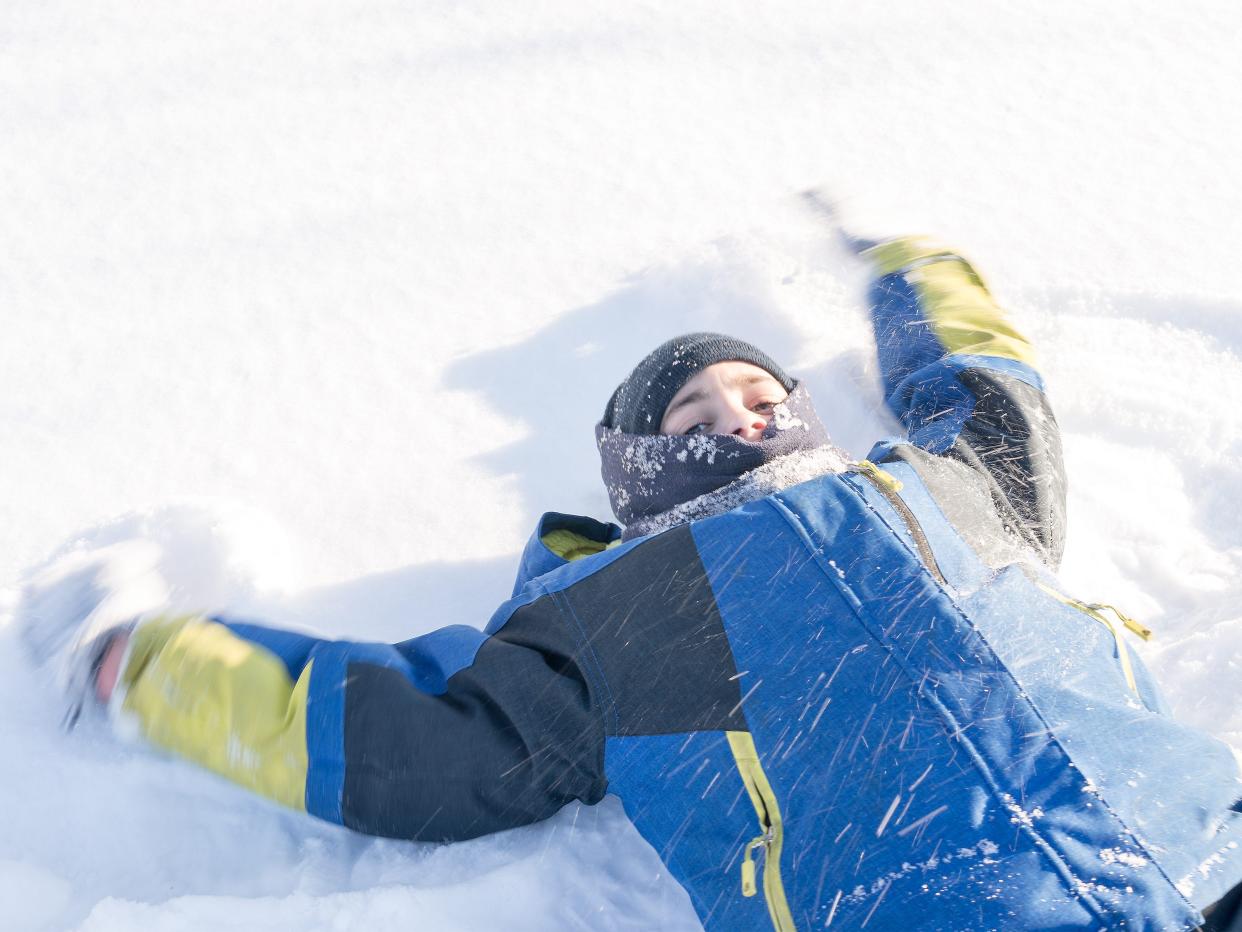My family moved from the US to Canada. Education at my son's school in Calgary was focused more on fun and adventure.

When my family moved to Canada, my 7-year-old son started playing in the snow at school.
The school also sent us less communication and fewer materials to read and sign.
My son's school in Canada was more fun and laid-back than his elementary school in the US.
When we moved from the US to Canada, one of the first differences my 7-year-old son noticed was that in Canada, he could play in the snow at school. It was unavoidable since snow is everywhere in Alberta in January.
My family and I moved to Calgary this year after I landed a temporary position at a university. My son attended a public elementary school near our rental house. Behind the school was a large, flat field — about the size of three football fields — covered with snow. It became a blank white canvas for imaginative play bounded by a chain-link fence. In some sections of the field, thousands of elementary-age footsteps playing tag or tramping across the playground had packed the snow hard and slick. The kids even devised a game of kicking soccer goals while other kids pelted them with snowballs. In other places, the snow was untouched except for the narrow game trails students walking between home and school had made.
After seeing the kids in the snow, I realized a key difference when it comes to education in the US versus education in Canada.
Snow became a source of play and education in Canada
Snow and ice drifted into the curriculum. One snowy day, the teacher set aside the regularly scheduled lesson plan and let my son's class build igloos for a science project. They studied how Inuit culture adapted to northern Canada's arctic climate for a geography lesson.
It was a contrast to my son's American school near St. Louis — where people appreciate snow much less. Snow in the lower Midwest is sporadic and melts quickly — it's something we adults endure, but don't enjoy. Snow in the US usually meant "indoor recess" for my son's elementary classes. This meant board games and running in the gym. If they did go outside, my kid was told not to touch the snow.
This makes for a more laid-back and carefree approach to education
As parents, one of the first things my spouse and I noticed after moving from the US to Canada was that we were spending a lot less time reviewing information from the school.
As parents of an elementary-school student in the US, we often felt like a part-time communications-management company trying to handle too many feeds of information about school and activities: Forms needing a signature sent home in a folder each night, posts to the school district's Facebook page about upcoming spirit weeks, announcements about daily activities from the school's learning-management software. It was a lot.
Put simply, elementary school in Canada was more relaxed for my son than it was in the US. My spouse and I were also less stressed about managing his schooling and activities in Canada.
But I worried this easygoing school culture came at the expense of learning
We can't chalk up the differences we noticed to a lack of rigor in Canadian public schools. The OECD's 2018 Programme for International Student Assessment, a gold standard for international comparisons of student learning, found that Canadian students had higher average reading, math, and science scores than US students.
Plus, the OECD's summary of US education performance found that "students in the United States reported significantly more competition than co-operation amongst their schoolmates" than in any other country studied.
I was trying to explain these differences to my son's Canadian teacher — telling her about the avoidance of snow — when she said, "It seems like they have a lot less fun in US schools than we do." I think that's the truth of it. Ask Americans to describe school these days; I bet very few would use the word "fun."
In the United States, we've had intense debates for years over how to improve schooling for our children. Would vouchers or charter schools improve things? What about homeschooling? Would requiring phonics improve reading abilities? Should we hold teachers accountable for their students' test scores?
But what's been conspicuously missing from all these debates is fun and adventure. Our American schools have become battlegrounds in culture wars and laboratories for data-driven education policy, but these schools have largely squeezed opportunities for fun out. Schools in Canada, our next-door neighbor and cultural cousin, suggest that it doesn't have to be this way.
Read the original article on Insider


